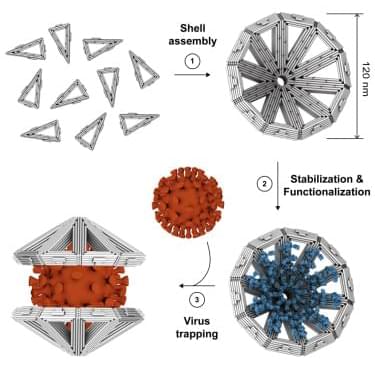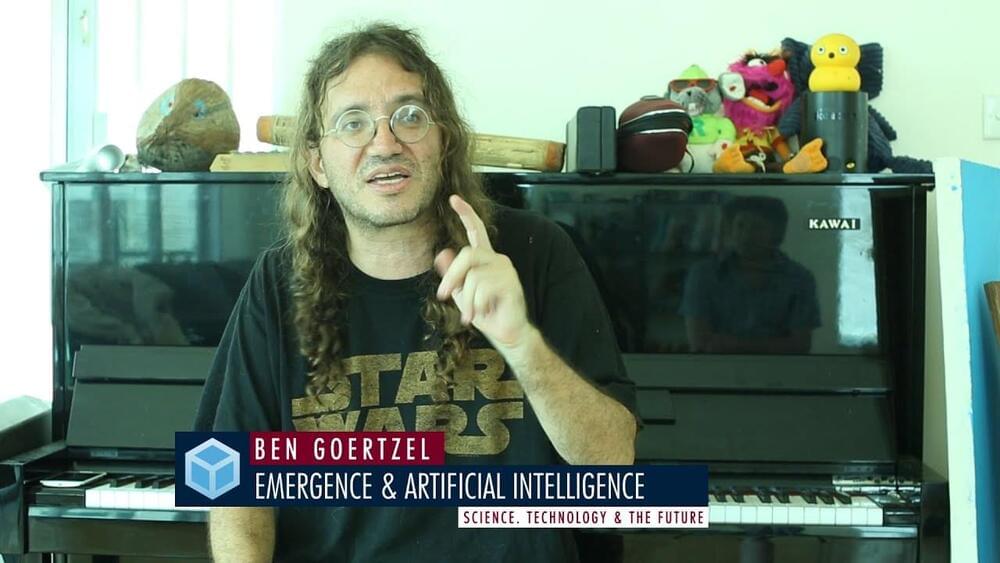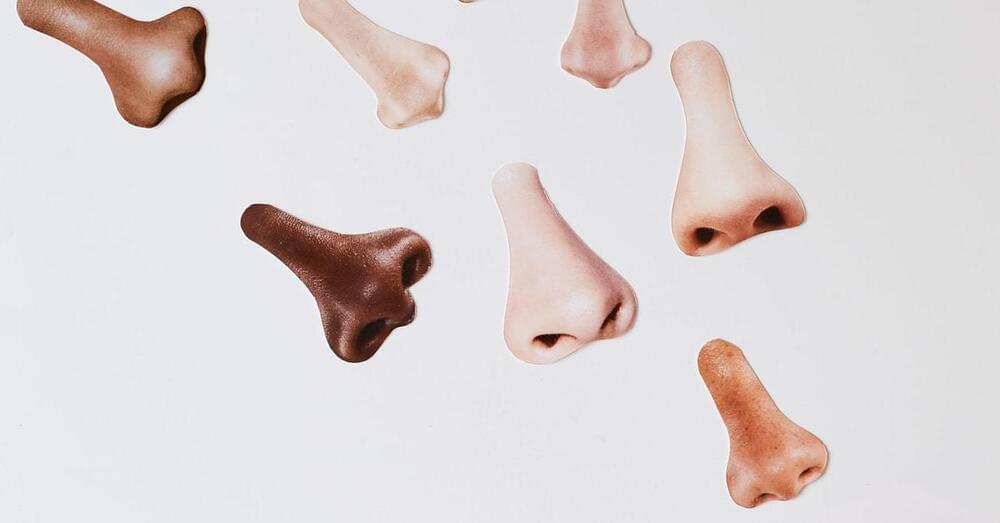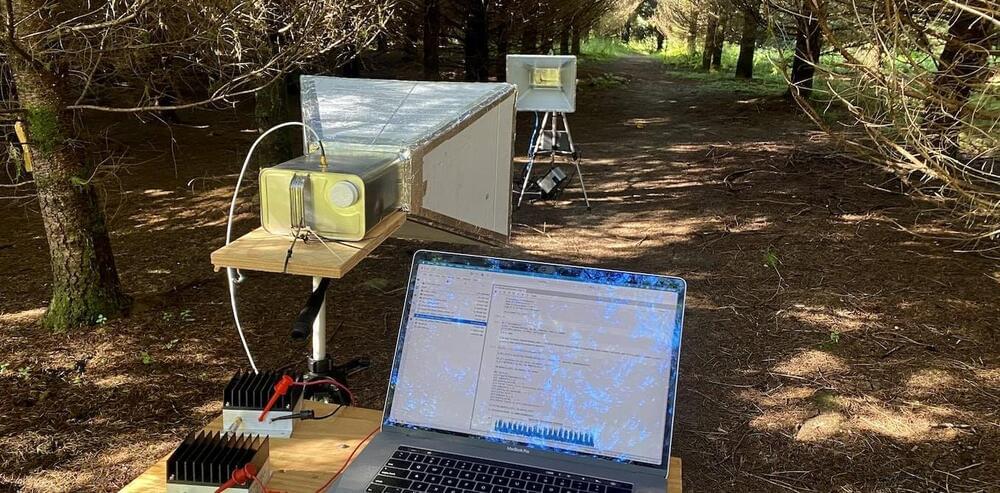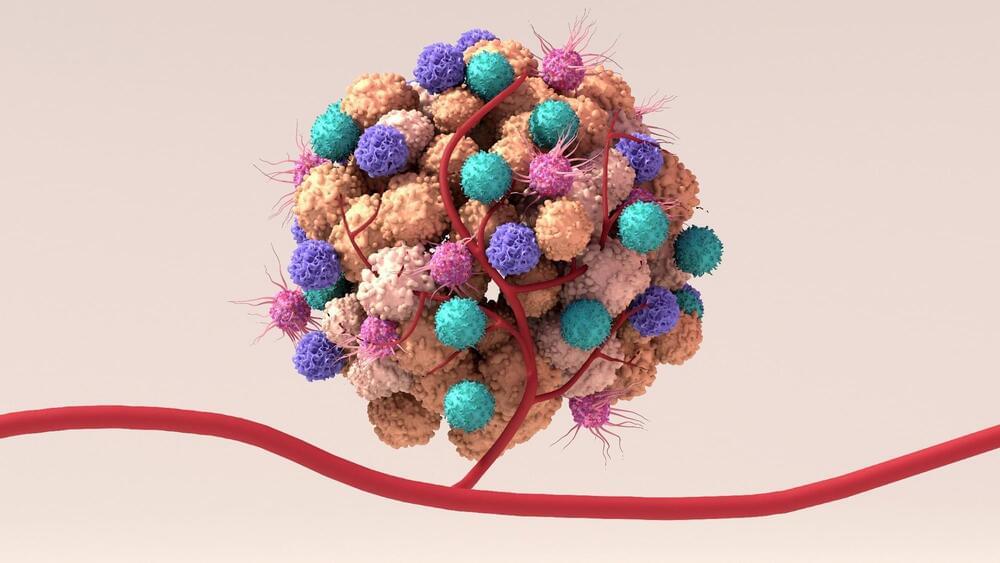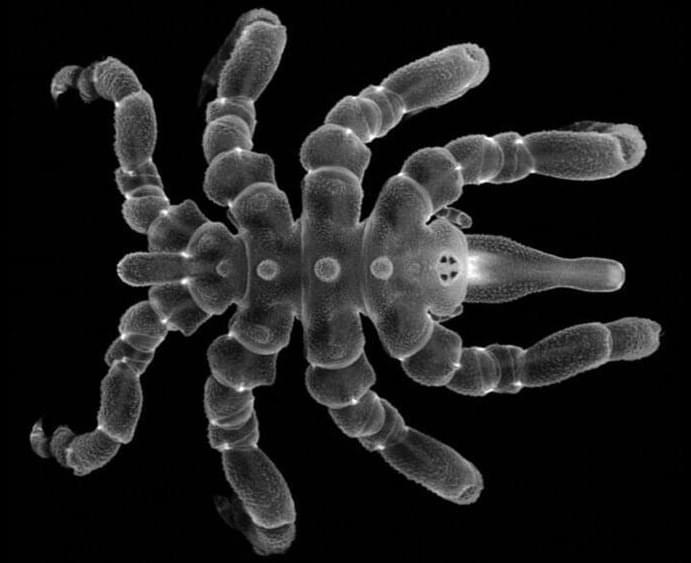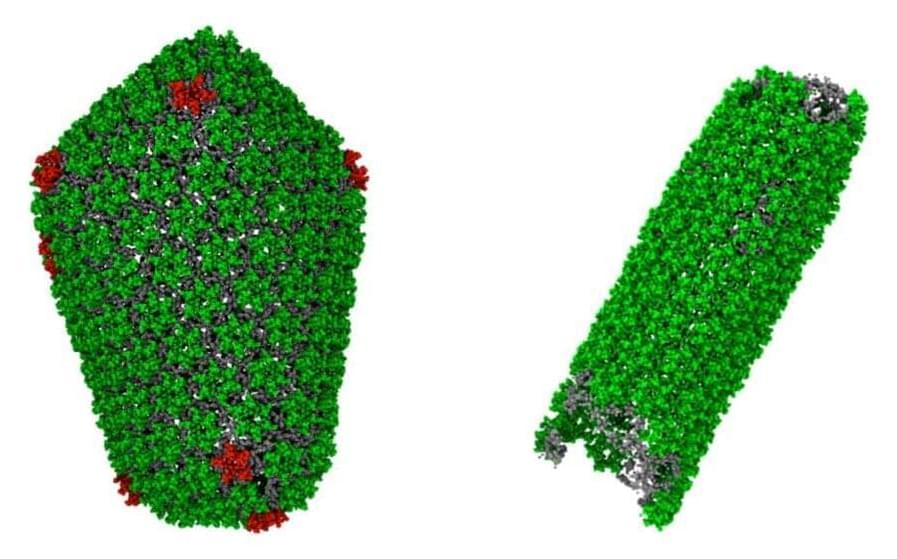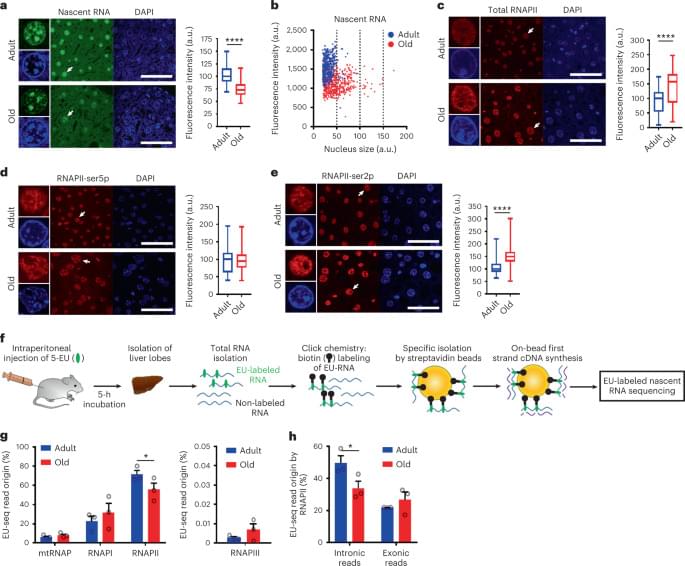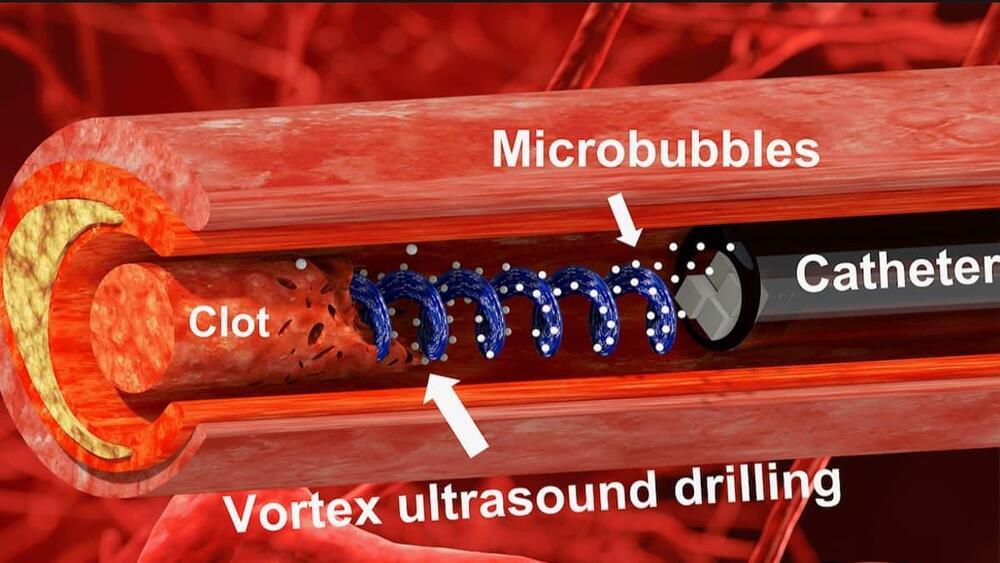Jan 24, 2023
DNA origami traps for large viruses
Posted by Shubham Ghosh Roy in categories: biotech/medical, particle physics
Virus-enveloping macromolecular shells or tilings can prevent viruses from entering cells. Here, we describe the design and assembly of a cone-shaped DNA origami higher-order assembly that can engulf and tile the surface of pleomorphic virus samples larger than 100 nm. We determine the structures of subunits and of complete cone assemblies using cryoelectron microscopy (cryo-EM) and establish stabilization treatments to enable usage in in vivo conditions. We use the cones exemplarily to engulf influenza A virus particles and severe acute respiratory syndrome coronavirus 2 (SARS-CoV-2), chikungunya, and Zika virus-like particles. Depending on the relative dimensions of cone to virus particles, multiple virus particles may be trapped per single cone, and multiple cones can also tile and adapt to the surface of aspherical virus particles. The cone assemblies form with high yields, require little purification, and are amenable for mass production, which is a key requirement for future real-world uses including as a potential antiviral agent.
